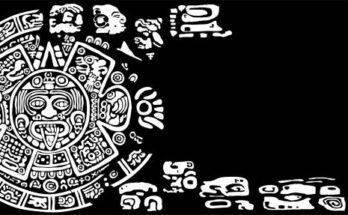Belief systems have played a central role in shaping human societies, providing a framework for understanding the world and our place in it. Traditionally, many belief systems revolve around the worship of gods or supernatural entities. However, there exists a fascinating realm of belief systems that navigate the complexities of human existence without relying on the divine. In this exploration, we delve into the diverse landscapes of secular worldviews, examining their origins, principles, and impact on individuals and societies.
Origins of Secular Belief Systems
 (Photo from iStock)
(Photo from iStock)
Secular belief systems, by definition, are those that do not involve the worship or adherence to deities. Instead, they seek to explain the mysteries of life through rationality, evidence, and human experience. One of the earliest examples of such a worldview is found in ancient Greek philosophy, particularly in the teachings of thinkers like Epicurus and the Stoics. These philosophers emphasized the importance of reason, ethics, and the pursuit of a good life without relying on divine intervention.
The Renaissance period witnessed a revival of interest in humanism, an intellectual movement that celebrated human achievements and emphasized the importance of reason and science. This marked a departure from the prevailing religious-centric worldview of the time, laying the groundwork for the secular thought that would gain prominence in subsequent centuries.
Principles of Secular Worldviews
Secular belief systems are diverse, encompassing a range of philosophical, ethical, and humanistic perspectives. While there is no single dogma that unites all secular worldviews, several common principles emerge:
- Rationality and Critical Thinking: At the core of secular beliefs is the reliance on reason and evidence-based thinking. Followers of secular worldviews often prioritize critical examination and skepticism, encouraging individuals to question assumptions and beliefs.
- Ethical Humanism: Secular belief systems often place a strong emphasis on human values and ethics. The principles of compassion, justice, and empathy are central to many secular philosophies, guiding individuals in their interactions with others and the world around them.
- Secular Humanism: A specific subset of secular belief systems, secular humanism, places human welfare and happiness at the forefront. It rejects supernatural explanations in favor of human-centered solutions to societal challenges, promoting the idea that people can live meaningful and fulfilling lives without relying on religious doctrines.
- Scientific Inquiry: Many secular worldviews align with the scientific method and endorse the pursuit of knowledge through empirical observation and experimentation. Science, in this context, becomes a guiding principle for understanding the natural world and addressing questions about existence.
Impact on Individuals
 (Photo from iStock)
(Photo from iStock)
Individuals who adopt secular worldviews often experience a profound shift in their perspectives and priorities. The emphasis on reason and evidence encourages a continuous process of questioning and learning, fostering intellectual growth and adaptability. Moreover, the absence of a divine authority places the responsibility for ethical decision-making squarely on the shoulders of individuals, prompting a deeper reflection on the consequences of one’s actions.
Secular beliefs can also provide a sense of community for individuals who share similar worldviews. Secular humanist organizations, for instance, often serve as platforms for like-minded individuals to connect, discuss shared values, and work towards common goals. This sense of community can be particularly important for those who may feel isolated in societies dominated by religious norms.
Impact on Societies
The influence of secular belief systems extends beyond individual lives to shape the fabric of societies. Here are some key ways in which secular worldviews impact communities:
- Pluralism and Tolerance: Secular societies often embrace diversity and promote religious and cultural pluralism. The absence of a dominant religious authority allows for the coexistence of various belief systems, fostering tolerance and understanding among different communities.
- Human Rights: Secular principles frequently underpin the concept of human rights. The idea that every individual possesses inherent dignity and rights, regardless of religious affiliation, is a cornerstone of many secular societies. This perspective has contributed to the development of legal frameworks that protect individual freedoms and equality.
- Education and Scientific Advancement: Secular societies tend to prioritize education and scientific inquiry. By encouraging the pursuit of knowledge for its own sake, these societies often experience significant advancements in science, technology, and other fields, leading to overall progress and development.
Challenges and Criticisms
 (Photo from iStock)
(Photo from iStock)
While secular belief systems offer a compelling alternative to religious worldviews, they are not without their challenges and criticisms. Some of the common critiques include:
- Moral Relativism: Critics argue that without a divine moral authority, secular ethics may succumb to moral relativism, where ethical standards become subjective and arbitrary. However, proponents counter that secular ethics can be grounded in rationality and human well-being.
- Existential Questions: Secular worldviews may grapple with existential questions about the meaning of life and the universe. Critics contend that without a divine purpose, individuals may struggle to find ultimate meaning. However, adherents argue that the pursuit of personal and collective meaning is a dynamic and evolving process within secular frameworks.
- Community and Ritual: Some individuals find a sense of community and purpose through religious rituals and traditions. Critics argue that secular communities may lack the same depth of communal bonding. However, proponents point to the vibrant secular humanist communities that provide a supportive environment for their members.
Conclusion
In a world rich with diverse belief systems, secular worldviews. Offer a unique perspective that navigates the complexities of human existence. Without relying on gods or supernatural entities. From the philosophical roots of ancient Greece. To the humanistic principles of today. Secular belief systems continue to shape the way individuals perceive and interact with the world.
The principles of reason, ethics, and scientific inquiry provide a foundation for individuals to lead meaningful lives. While not without challenges and criticisms. The impact of secular worldviews on individuals and societies is evident in the promotion of pluralism.
As we continue to explore the vast landscape of belief systems, the journey into secular worldviews invites us to question. Reflect, and engage with the profound questions that have intrigued humanity for centuries. Questions that persist even in the absence of gods.




